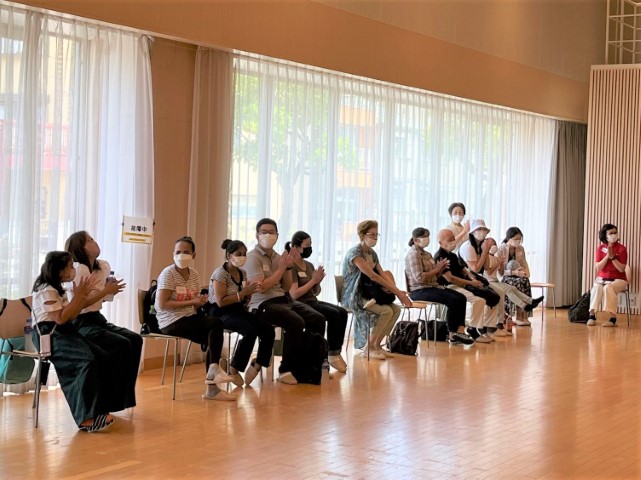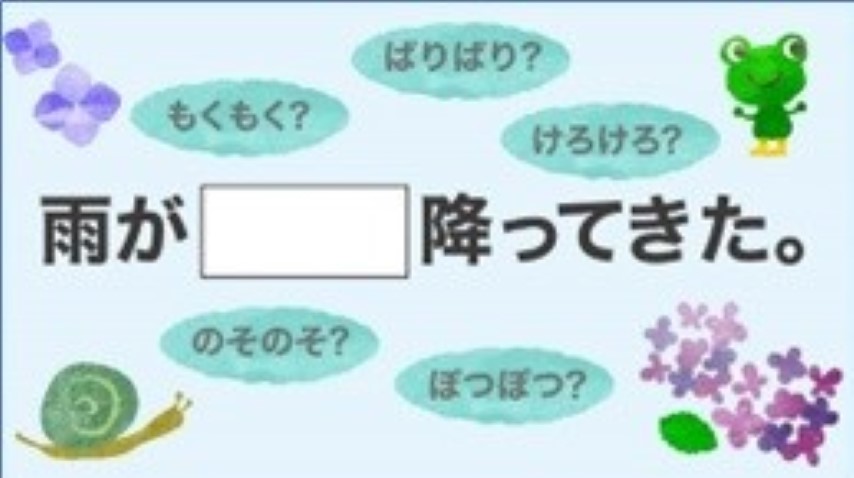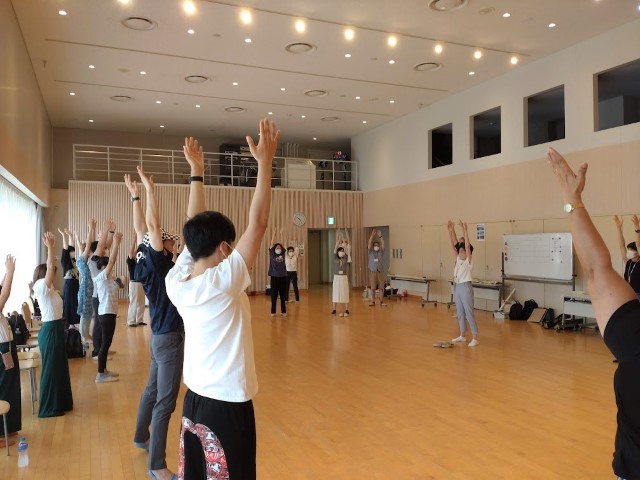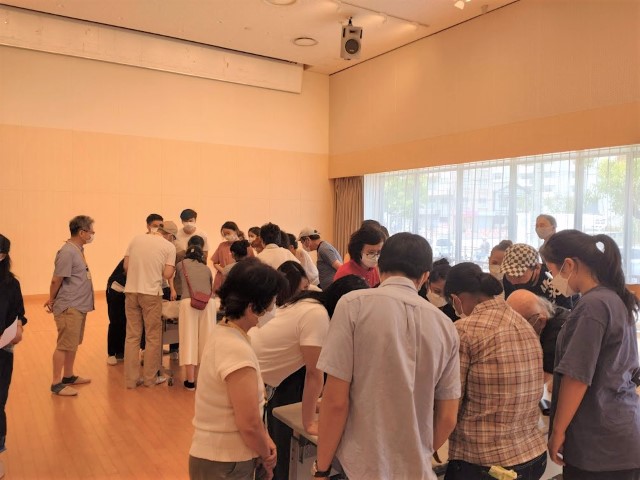 Saturday Japanese Class held a special event “Otanoshimikai”.
Saturday Japanese Class held a special event “Otanoshimikai”.
On-line lessons were given for two years due to the pandemic, and this year on-line and face-to-face lessons have been given every other week.
On that day the students and the teachers got together for the first time in two years. A volunteer teacher reports the event. (No.22-5)
Date and Time: Saturday, July 9, 2022 10:00 a.m. ~ 11:30 a.m.
Venue: Abista Hall
Participants: 19 students with 5 family members including 4 children and 14 volunteer teachers (38 people in total)
In Saturday Class, the students usually study in small groups according to their Japanese skills, and at the end of each term, three times a year, a special event (a joint lesson named “Otanoshimikai”) is held, where they can communicate with people from other groups in a relaxed atmosphere.
This event has been held online for two years but there were limitations to the programs, and finally in-person “Otanoshimikai” was realized.
One of our worries on that day was whether the students, especially beginners, many of whom had never been to Abista, could make it, though we had given them a map and explained how to get there beforehand.
When some students arrived, they were all smiles, saying “I nearly got lost, but I’ve made it!”
1. Self-Introduction
First, all the students briefly introduced themselves. When a new student didn’t know what to say and looked nervous, another student quickly came to her to help, and translated for her. I felt this kind of heartwarming scene could be seen only in in-person events.
2. Exercise Time
Under the instruction of one of the teachers, who is a yoga instructor, all the people stretched their body focusing on breathing. Some students looked nervous at first, but they began to exercise with other people and looked relaxed. Two young Vietnamese men who had just joined the class also looked happy enjoying exercising with other people.
3. Onomatopoeia Quiz
The students were divided into two teams, the red and the blue, and a book with ten onomatopoeia questions, compiled by the teachers, was prepared on each table. “Hira-hira” “Kira-kira” “Byu-byu”… Japanese is abundant in onomatopoeias. With the help of illustrations they discussed in each team and both teams answered all the questions correctly.
4. Disaster Prevention Quiz
Various kinds of emergency foods, which were to be given to the participants as souvenirs later, were displayed on a table.
How should we prepare for natural disasters such as torrential rains, typhoons, floods and earthquakes, which often happen in Japan?
One of the questions on which there was a heated discussion was “Which canned food can be used instead of a candle at a time of emergency, tuna or peach?”
at a time of emergency, tuna or peach?”
The correct answer was “tuna”. You make a small hole in a canned tuna and put a string through it, and then you can use it as a lamp.
The students learned Japanese words like “非常食hijoshoku” (emergency food) and “備蓄bichiku” (stockpile).
5. “Shiritori” (Heads and Tails Game)
The first word of the game was “bichiku”, which they had just learned. The leaders of both teams quickly wrote chained words on the answer sheet with the help of the other students.
The red team won the race and got the right to choose the souvenirs first from the various emergency foods; biscuits, yokan (sweet jellied bean-paste bars), alpha rice with various flavors (mushroom, curry, etc.)
Some students couldn’t decide which to pick out, looking at them curiously. Others asked about the expiry date.
I hope they took an interest in disaster prevention through this quiz.
Between the games the students spoke with each other, in Japanese and in their native languages. Looking at them I was glad we were able to offer a chance for communication which is different from usual lessons. Meeting in person is definitely important.
One of the students who have long studied in this class said, “AIRA is like a family.” I was very happy to hear that. We have to respond to her trust, as supporters for people who came from other countries and work hard here.
Miki Sakurada, Saturday Class volunteer teacher
Translated by Chizu Yamaguchi


